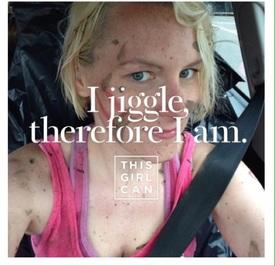Weight loss and body fat loss question

chezzabelle82
Posts: 302 Member
Do you lose body fat by calorie control the same as losing weight? Also when I get to my goal weight if I still wanted to lose body fat how would I do this?? Was discussing this today with a friend and we both have different opinions so thought I would ask you on here to settle it once and for all lol (thanks in advance for your input)
0
Replies
-
Yes - in an ideal world, the only weight you'd lose would be body fat. But usually people also lose some lean body mass along the way, such as muscle. A common goal (and very worthwhile whatever your desired end state might be!) is to preserve as much muscle mass as one can while losing weight so that most of the weight lost is body fat. You can greatly reduce the amount of muscle mass lost when losing weight by: (1) eating enough protein, as much as 1.1 - 1.4g per pound of lean body mass you already have; and (2) regularly engaging in challenging resistance training, such as lifting weights.
If you get to your goal weight and still want to lose body fat, you are going to have to (1) lose more weight, or (2) engage in a slow recomposition -- essentially trying to build muscle mass while shedding the occasional bit of body fat, so that your overall weight remains roughly the same but you are decreasing the amount of fat that contributes to the overall weight. Many here choose to alternate cycles of "bulking" and "cutting" instead of recomping, which is to say deliberately gaining weight - hopefully mostly muscle but some fat always comes along with it - and then deliberately losing weight - hopefully mostly fat that was gained during the bulk. After a bulk/cut cycle, one would expect greater muscle mass and less or the same amount of body fat, resulting in a lowered body fat percentage.0 -
When people talk about "losing weight" they usually mean "losing fat". Your "goal weight" should be based on a target body fat level, not some arbitrary scale number. In other words, if you reach a "goal weight" but still feel you need to lose fat, then you didn't have the right goal weight to start with. Does that make sense? It's not meant as criticism, just an explanation.
If you can, it would be helpful to have your body fat tested and then choose a target that is appropriate and achievable. To determine a new "goal weight", multiply your current weight by bf%. That gives you your "fat pounds". Subtract fat lbs from current scale weight to get your estimated "fat free mass".
To determine a goal weight, divide fat free mass by (1-body fat % expressed as a decimal).
Example: current scale weight 160. Body fat %: 35%. That works out to fat lbs: 56 fat-free mass: 104
Target body fat: 25%. To determine goal weight: divide fat free mass (104) by .75 (1 minus .25)
Goal weight: 139
With exercise--esp resistance training--fat free mass might change, so the goal weight might shift a little, but that's still a good ballpark goal.0 -
Weight loss is typically about 70% fat loss, 30% non-fat (including water).0
-
Exercise, lift weights, and eat a balanced diet to minimize muscle loss. Most of the weight loss will be fat but you will lose some muscle as well. But you can always build muscle once you reach your goal weight/goal body fat percentage, so it'll be okay.0
-
Maybe if you're a cardio queen. If you do full body heavy lifting programme that should be closer to 85% fat, 15% non-fat. That's been my experience anyhow and a few other people I know where in the same range +/- 5%.Weight loss is typically about 70% fat loss, 30% non-fat (including water).0
This discussion has been closed.
Categories
- All Categories
- 1.4M Health, Wellness and Goals
- 398.2K Introduce Yourself
- 44.7K Getting Started
- 261K Health and Weight Loss
- 176.4K Food and Nutrition
- 47.7K Recipes
- 233K Fitness and Exercise
- 463 Sleep, Mindfulness and Overall Wellness
- 6.5K Goal: Maintaining Weight
- 8.7K Goal: Gaining Weight and Body Building
- 153.5K Motivation and Support
- 8.4K Challenges
- 1.4K Debate Club
- 96.5K Chit-Chat
- 2.6K Fun and Games
- 4.8K MyFitnessPal Information
- 13 News and Announcements
- 21 MyFitnessPal Academy
- 1.6K Feature Suggestions and Ideas
- 3.2K MyFitnessPal Tech Support Questions




